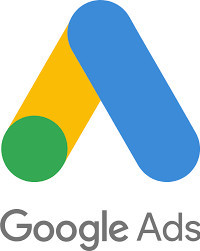Getting started with PPC is so exciting. Instead of hoping your blog will one day rank and people will buy your product, you have a sure-fire way of driving traffic. Or so you thought….
PPC isn’t quite as straightforward as ‘they’ would have you believe. There are so many places you can go wrong! If you want to learn how to avoid Google PPC mistakes, take note of these newbie clangers!
Table of Contents
Targeting the wrong countries
Let’s start with an absolute classic made by yours truly.
I had done my research and I knew the best countries to target but for some reason, I thought I would just see what happened. With hindsight, this was insanity.
What did happen is that I got lots of sign-ups (for the free product on offer) from people living in Asia. I was beyond excited! This was the dream! The average upgrade rate is 12% so I would soon be retiring to the Bahamas. Except that precisely none of them upgraded to the full product.
What I hadn’t taken into consideration was that Asian countries typically earn a small fraction of what we earn in the West and it was highly unlikely they would be able to afford to upgrade.
There are also some countries where people do not have any way of making online payments, either by card or by Paypal. So many of these people would have been interested in what I had but had no opportunity to buy.
Talk about money down the drain!
Targeting the wrong locations
If you have a physical business, you may accidentally be targeting the wrong locations.
Imagine you have a car body shop based in Tampa, Florida. Then take care not to show your ad to people who are too far to away to use your service.
By using the location targeting option when setting up your ads, your business will be shown to searchers who are regularly in your area. You can also choose areas where you don’t want it to show.
By neglecting this task, your ad could be shown to thousands of people who will never be your customers.

Using broad keywords
While there is a huge emphasis on keywords in organic search, oftentimes not enough consideration is given to keywords in PPC ads. This is potentially very costly. Things to consider when deciding on keywords:
- Your budget. If you only have a low budget, consider using a single keyword ad group (SKAG). If you give Google too many options your ad could be spread too thinly. Read more about it here.
- User intent. If someone is searching for, ‘golf’ (for example) you have no idea what their intent is. Maybe they are considering taking up golf, but you don’t really know. However, if someone searches for ‘best golf driver for beginners’, or ‘cheap golf clubs’, there is a very good chance that they are interested in buying one.
Phrase match or exact match will serve you much better as they will have a much higher chance of converting.
Not using a landing page
If you are an affiliate marketer or have an e-commerce website, it is quite possible to send people directly to your affiliate link or sales page. The trouble with this is that your potential customer does not know who you are and if you can be trusted.
A landing page builds a bridge between your ad and the sales. On this page you can:
1. Re-iterate your offer and assure the prospect that they are in the right place
2. Expand on the value they will get by buying (or signing up) now
3. Use social proof in the form of testimonials so they can see the results they can expect from your product
4. Capture their email address so if they end up not making a purchase, you can keep in touch with them
If you don’t use a landing page, people will go directly to the sales page (if you are an affiliate marketer) where you have had no control over the content. Your prospect may decide it’s not for them and you have wasted a click (and money). Here’s an example of a landing page I am using currently.
Only using one landing page
If you are running several ads (which you should be), perhaps targeting different keywords, you need to make sure that the landing page matches the ad.
For example, maybe your first advert has the keyword ‘affiliate marketing course’ and your second advert has ‘blogging course’. You should create a separate landing page for each or there will be an immediate disconnect. (Can you guess who made this mistake? Guilty as charged.)
Not A/B testing
This is huge. If you don’t know which ad is producing the best results, you are potentially running an ad that is performing badly and costing you dearly.
Conversely, if you put your money on the ad that is scoring a home run, you will be able to compound your results. And if you don’t change different elements from time to time, you will never know just how good an ad could have performed.
Elements you will want to split test are:
- The Headline
- The body copy
- Your landing page
- Keywords
I would suggest that you first check what keywords are performing and which are not and remove the worst-performing. Then decide which element you want to change in your ad. Change one thing only in each ad then monitor the results. (Changing more than one thing will mean that you don’t know what made the difference.)
Then you can go on to changing another element. Anyone doing really well in the world of PPC is doing this.
Not including ad extensions
Ad extensions are extra bits of copy. The number of characters in a Google ad is so small, you need to take advantage of any opportunity to include extra words to attract visitors to click on your ad.
You can add a location, a phone number, or a CTA.
Not using negative keywords
This is a very simple way of reducing clicks (and consequently increasing your ROI) from people who will not be interested in your product or service.
Imagine you have a blog that specializes in selling hi-tech televisions. You might want to put ‘repair’ in the negative keywords as it may come up with some other search terms but would be absolutely useless in helping you sell your TVs.
Including Google search partners
I have found that Google’s search partners do not deliver the same quality of lead as Google ads. Consequently, I always tick the box to exclude them.
The takeaway
There are so many places you can go wrong with your PPC campaign, it is worth allowing lots of time when you are getting started to make sure you have avoided as many pitfalls as possible!
Have you made mistakes setting up a PPC campaign? If so, I would love to hear about them in the comments.


Some great advice here, thank you
Hi James
You are welcome! Shout up if I can help with anything.
Best,
Jean